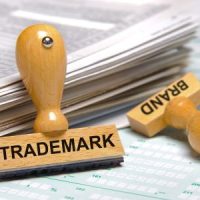The Five Main Remedies in a Trademark Infringement Claim

A trademark is a key form of intellectual property (IP) for many businesses in Florida. The World Intellectual Property Organization (WIPO) estimates that there are 2.8 million active trademark registrations in the United States. Trademark infringement can damage your brand—but there are legal remedies available under the law. Within this blog post, our Florida trademark infringement attorney highlights the five main remedies that may be available in a trademark infringement claim.
- An Injunction (Court Order) to Stop Any Further Offending Use
One of the primary remedies sought in a trademark infringement claim is an injunction to cease any further use of the disputed mark. An injunction is a legal order issued by a court that commands or prohibits specific actions. In the case of trademark infringement, an injunction would typically be used to prohibit the infringing party from further using the trademark in question. It is an option that helps the owner of the trademark to maintain their brand’s distinctiveness and reputation, and prevents consumer confusion.
- An Injunction (Court Order) to Turn Over or Destroy Infringing Goods
In some cases, an injunction may also be used to order the infringing party to surrender or destroy any goods that are found to be infringing on the trademark. This might include counterfeit products, promotional materials, or even digital assets that bear the infringing mark. It is a remedy that serves dual purpose: 1) Deterring the infringing party from further illegal use of the trademark and 2) Safeguarding the public from being misled or deceived by infringing goods in the market.
- Monetary Relief – Disgorgement of Profits
An Infringing party may be required to turn over all of the profits resulting from the trademark infringement. This is an equitable remedy that would involve a financial analysis of the infringing party’s financial records to determine the profits it made resulting from the infringement. This type of damage is awarded to prevent the infringing party from benefiting from its bad acts.
- Monetary Relief—Potentially including Lost Profits
Monetary relief, including potential lost profits, is another common form of remedy in trademark infringement cases. The infringing party may be ordered to pay damages to the owner of the trademark for profits lost due to the infringement. This compensatory remedy aims to put the trademark owner in the position they would have been in had the infringement not occurred. Calculating lost profits can be complex and may involve expert testimony.
- Legal Costs—Potentially including Attorneys’ Fees
Finally, the court may order the infringing party to pay the trademark owner’s legal costs, including attorneys’ fees, as part of the relief. This kind of financial burden acts as a deterrent for future potential infringers. However, awarding attorneys’ fees is not automatic and typically occurs in cases of ‘exceptional’ trademark infringement where the actions of the infringing party are deemed malicious, fraudulent, deliberate, or willful. Still, it is a remedy that may be available in some situations.
Set Up a Fully Confidential Consultation With a Top Boca Raton Trademark Lawyer
At Perkins Law – Brand Protection, our Florida trademark infringement attorney is standing by, ready to get started working on your case right away. If you have any questions about the available remedies in a trademark infringement case, please do not hesitate to contact us today for a fully confidential consultation. We handle trademark infringement claims in Miami-Dade County, Broward County, Palm Beach County, and throughout the surrounding area.
Source:
wipo.int/pressroom/en/articles/2022/article_0013.html#:~:text=There%20were%20an%20estimated%2073.7,and%202.6%20million%20in%20India
